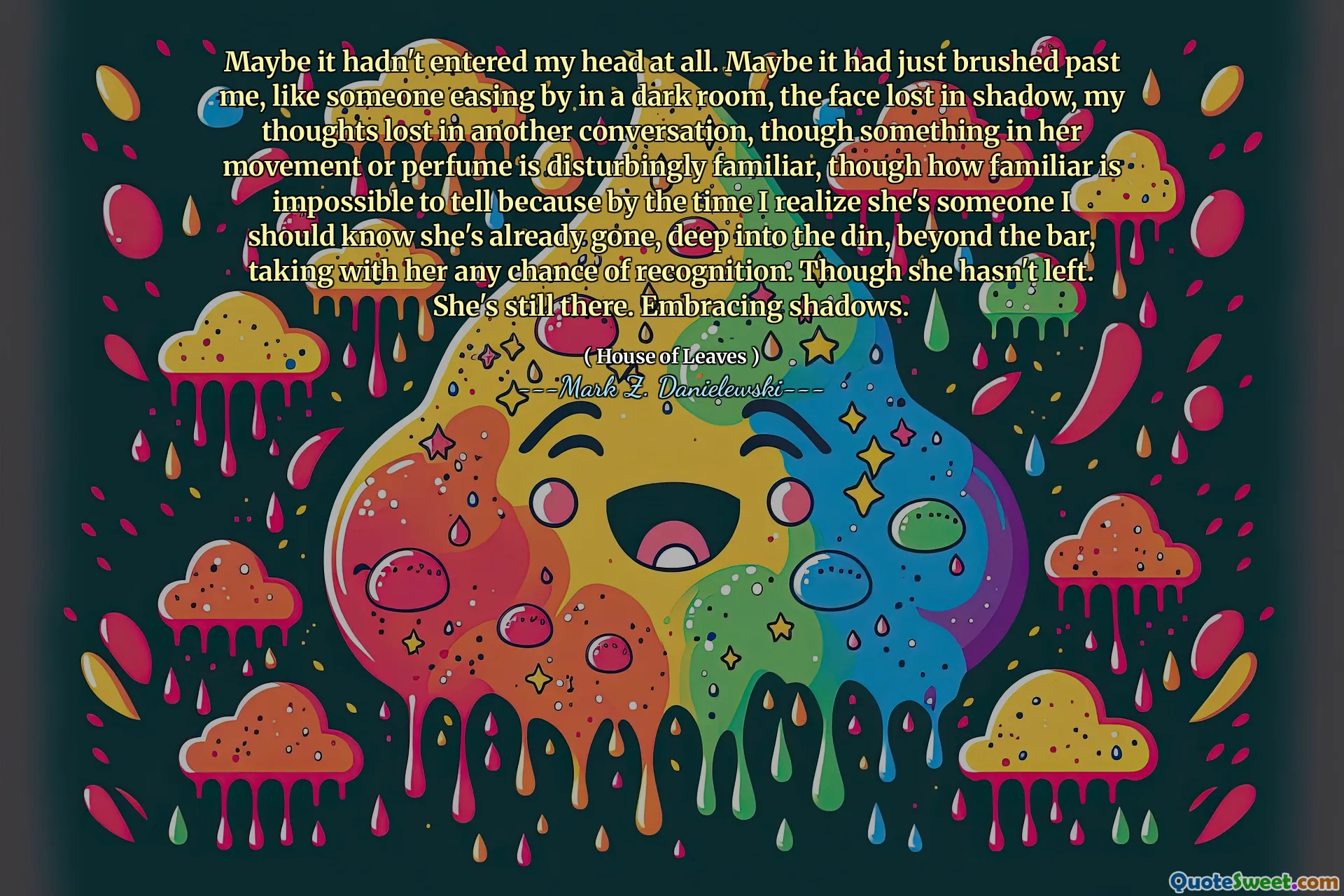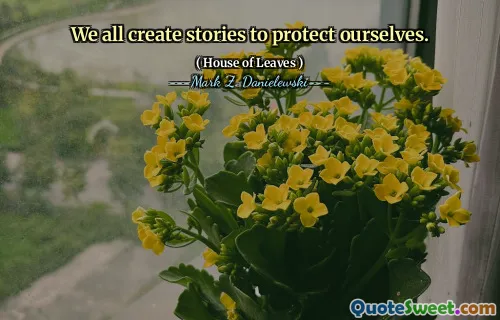
Maybe it hadn't entered my head at all. Maybe it had just brushed past me, like someone easing by in a dark room, the face lost in shadow, my thoughts lost in another conversation, though something in her movement or perfume is disturbingly familiar, though how familiar is impossible to tell because by the time I realize she's someone I should know she's already gone, deep into the din, beyond the bar, taking with her any chance of recognition. Though she hasn't left. She's still there. Embracing shadows.
This passage evokes a haunting sense of fleeting recognition and the elusive nature of memory and identity. The narrator describes an experience where someone who feels familiar appears only briefly, and despite the instincts or sensations suggesting a connection, the clarity of that recognition continuously slips away. The imagery of a shadowed figure moving seamlessly through darkness creates a metaphor for how memories or feelings of familiarity might linger just beyond conscious grasp, whispering of undiscovered links yet remaining perpetually out of reach. On a deeper level, this reflects our human tendency to seek patterns or meaning in fragmented perceptions, often confronted with the ambiguity of what we truly know or remember. The sense of the person being 'still there,' despite apparently leaving, suggests that sometimes what we seek in others or within ourselves is not about their physical presence but about the shadows of understanding we carry—sensations, scents, or instincts that persist. It also alludes to the complexity of perception—how our mind filters and interprets stimuli in ways that can obscure the truth, leaving us with a sense of longing for certainty amidst ambiguity. The theme resonates with notions of fleeting encounters, the indistinct borders between the known and the unknown, and the shadows lurking in human consciousness that shape our perception of reality.
(House of Leaves) - ---Mark Z. Danielewski---







